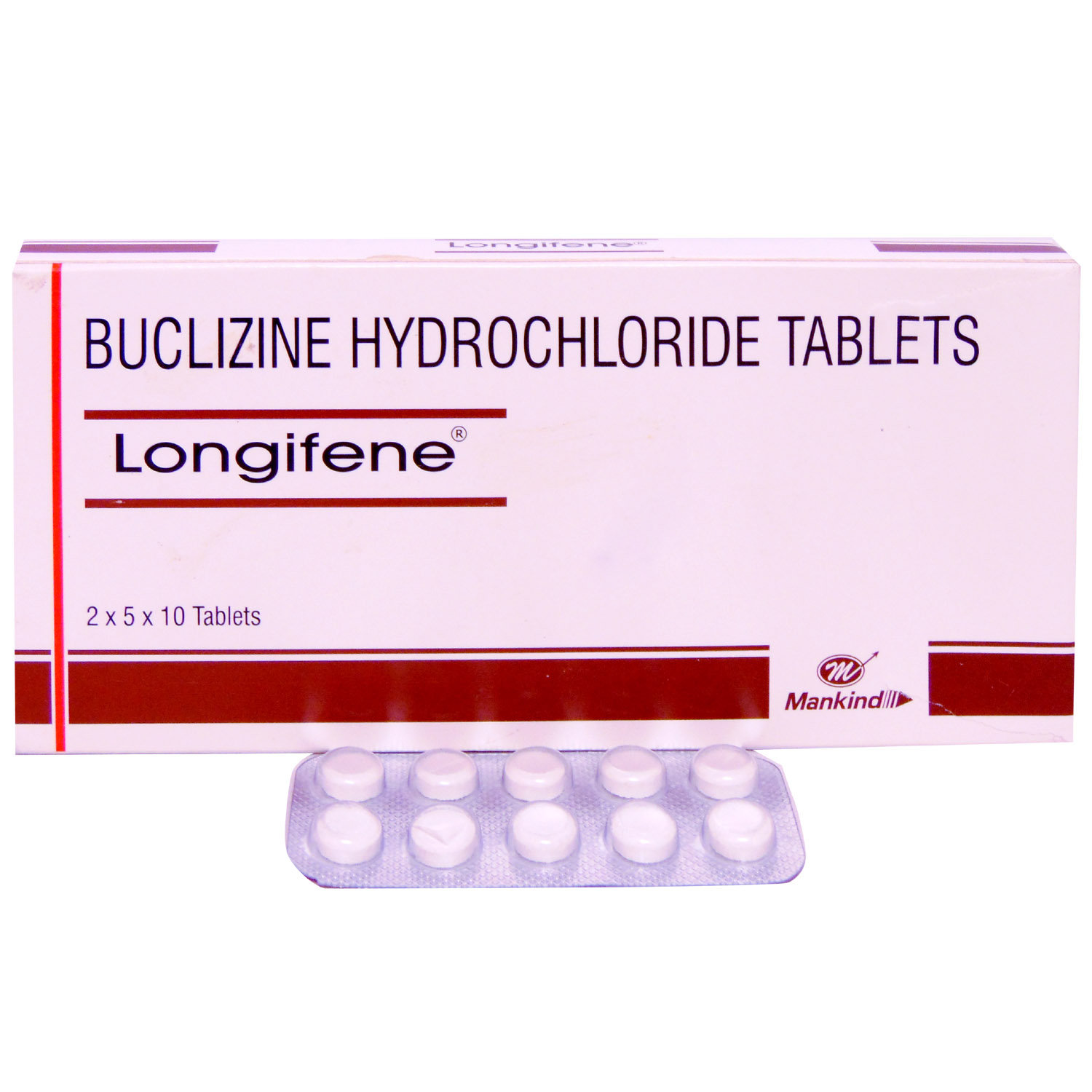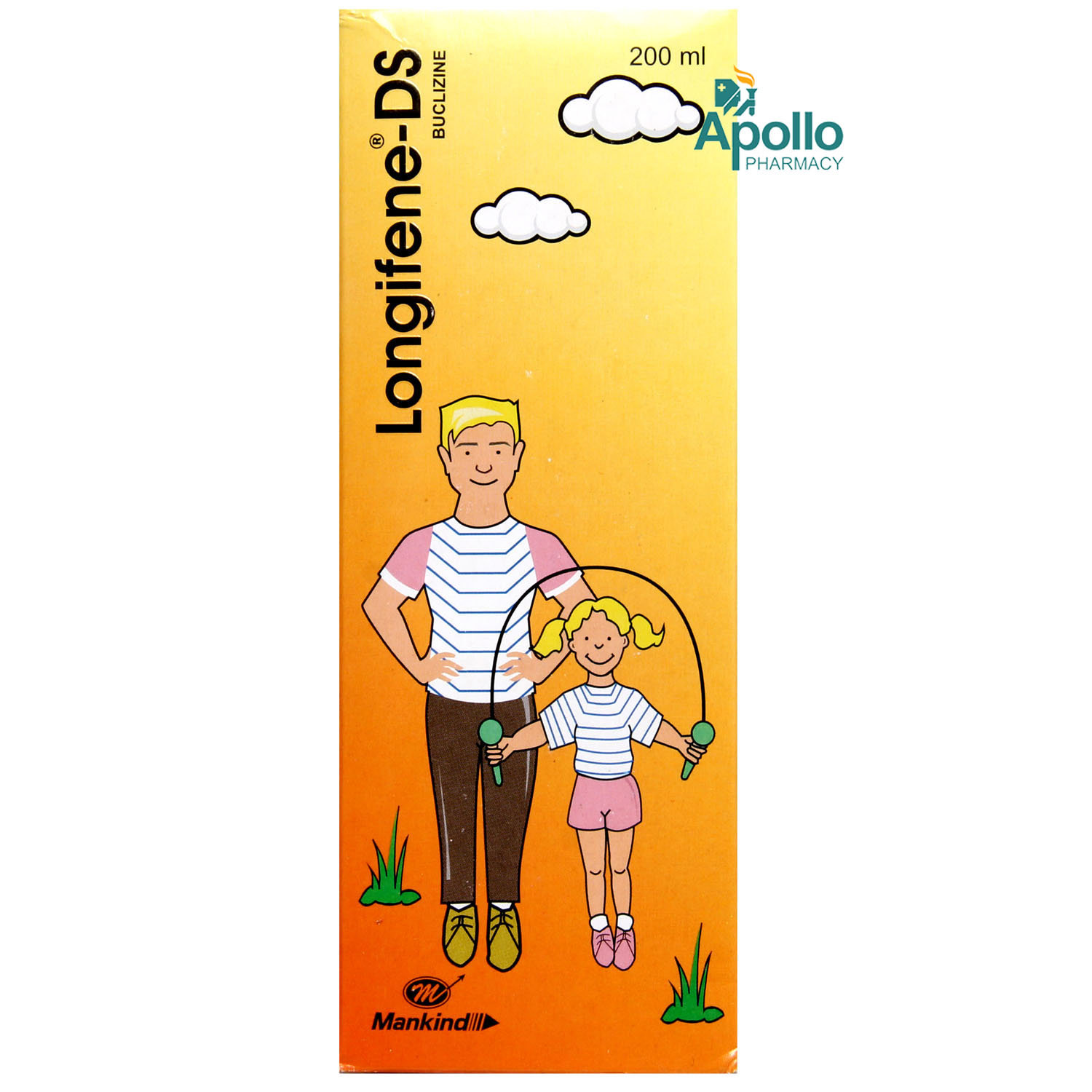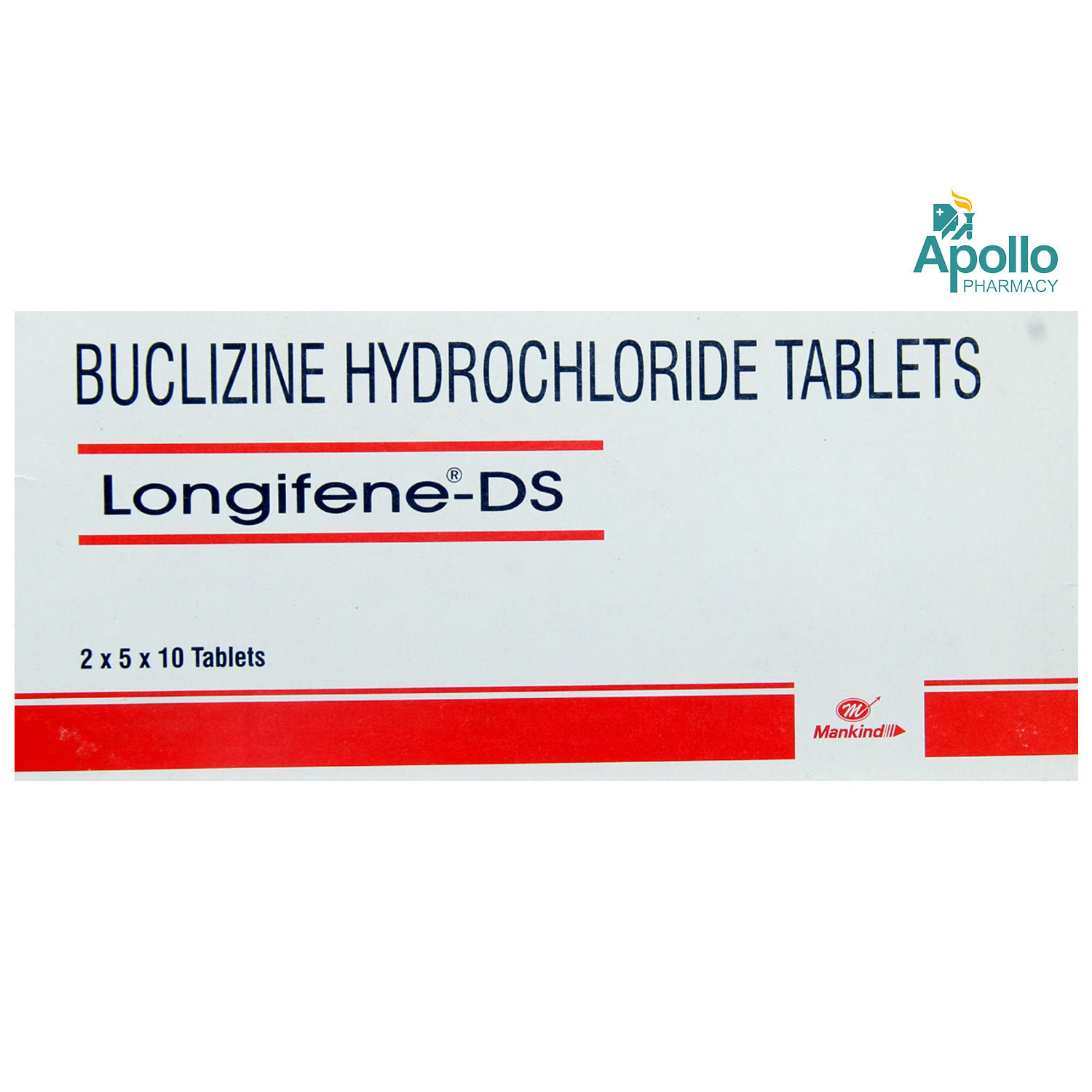Buclizine
About Buclizine
Buclizine belongs to the class of medications called antihistamines and antiallergic agents used to relieve allergic conditions and to prevent nausea, vomiting and motion sickness. An allergy is an immune system response to foreign elements known as allergens. Nausea is feeling an urge to vomit, whereas vomiting is when you throw up.
Buclizine contains Buclizine, which works by blocking the action of chemical messengers that cause allergic symptoms. Thus, it helps treat allergic conditions. Buclizine prevents nausea and vomiting by inhibiting the vomiting centre in the brain from receiving the nerve messengers that cause motion sickness.
In some cases, Buclizine may cause diarrhoea, dry mouth, dizziness, drowsiness, headache and indigestion. Most of these side effects may not require medical attention and gradually resolve over time. However, you are advised to consult the doctor if any of the side effects persist or worsen.
Consult the doctor if you are pregnant or breastfeeding. Drive or operate machinery only if you are alert, as Buclizine may impair your ability to drive. Avoid or limit the consumption of alcohol while on treatment with Buclizine. Keep your doctor informed about your health condition and medications to rule out any side effects/interactions.
Uses of Buclizine
Medicinal Benefits
Buclizine belongs to the class of medications called antihistamines and antiallergic agents used to relieve allergic conditions and to prevent nausea, vomiting and motion sickness. Buclizine contains Buclizine, which works by blocking the action of chemical messengers that cause allergic symptoms. Thus, it helps treat allergic conditions. Buclizine prevents nausea and vomiting by inhibiting the vomiting centre in the brain from receiving the nerve messengers that cause motion sickness.
Directions for Use
Storage
Side Effects of Buclizine
- Headache
- Drowsiness
- Dizziness
- Dry mouth
- Indigestion
- Diarrhoea
Drug Warnings
Do not take Buclizine if you are allergic to any of its components. Inform the doctor if you have gastrointestinal obstruction, bladder neck obstruction, enlarged prostate, increased pressure in the eye, or liver/kidney problems. Consult the doctor if you are pregnant or breastfeeding. Drive or operate machinery only if you are alert, as Buclizine may impair your ability to drive. Let your doctor know if you are taking any prescription or non-prescription medicines, including dietary or herbal supplements.
Drug Interactions
Drug-Drug Interactions: Inform the doctor if you are taking CNS depressants.
Drug-Food Interactions: No interactions found.
Drug-Disease Interactions: Inform the doctor if you have gastrointestinal obstruction, bladder neck obstruction, enlarged prostate, or increased pressure in the eye.
Drug-Drug Interactions Checker List:
Safety Advice

Alcohol
cautionBuclizine may enhance the CNS depressant effect of alcohol. Therefore, avoid the consumption of alcohol.

Pregnancy
cautionBuclizine belongs to pregnancy category C. Buclizine may not be recommended during pregnancy. However, please consult the doctor if you are pregnant or planning pregnancy.

Breast Feeding
cautionBuclizine may not be recommended during breastfeeding. However, please consult the doctor if you are breastfeeding.

Driving
cautionBuclizine may impair your ability to drive or operate machinery. So, drive or operate machinery only if you are alert.

Liver
consult your doctorLimited information is available. If you have a history of liver disease, inform the doctor before taking Buclizine.

Kidney
consult your doctorLimited information is available. If you have a history of kidney disease, inform the doctor before taking Buclizine.

Children
consult your doctorPlease consult the doctor if you have any concerns regarding the usage of Buclizine in children.
Habit Forming
Diet & Lifestyle Advise
Allergy:
- Avoid stress by exercising regularly, meditating, doing deep breathing, or following progressive muscle relaxation techniques.
- Rest well. Get optimum sleep.
- Avoid contact with known allergens (allergy-causing agents) such as pollen, dust, and certain food items known to cause allergies to you.
- Maintain personal hygiene and keep your surroundings clean.
Nausea & Vomiting:
- Eat smaller meals more often.
- Drink fluids to stay hydrated.
- Avoid solid foods until the vomiting stops.
- Avoid foods that might cause stomach upset.
- Take ample rest. Avoid any activity immediately after eating.
- Consume plain, light foods such as bread and biscuits.
- Avoid food with strong flavours and fried food.
- Ginger tea might help in proper digestion.
Patients Concern
Disease/Condition Glossary
Allergy: It occurs when the immune system responds to foreign elements known as allergens, such as pollen, dust mites, pet dander, mould spores, medicines, food or insect bites. Symptoms include itching, watery eyes, swelling, runny nose, itchy skin, and sneezing.
Nausea & Vomiting: Nausea is an uneasy feeling in which the person feels an urge to vomit, whereas vomiting is an uncontrollable reflex that expels the contents of the stomach through the mouth. Nausea and vomiting may occur separately or together. The common causes include motion sickness, emotional stress, indigestion, food poisoning, high fever or overeating.
Motion sickness: It is an illness caused due to motion during travelling by car, plane, boat, or train. The body’s sensory organs send mixed signals to the brain, causing dizziness, light-headedness, nausea or vomiting. Symptoms include nausea, vomiting, fatigue, uneasiness, dizziness, trouble maintaining balance or loss of balance.
FAQs
Buclizine relieves allergy by blocking the action of chemical messengers that cause allergic symptoms. It prevents nausea and vomiting by inhibiting the vomiting centre in the brain from receiving the nerve messengers that cause motion sickness.
Dry mouth could be a side effect of Buclizine. Limit caffeine intake and avoid smoking; drink water regularly and chew sugar-free gum/candy. This might help stimulate saliva and prevent drying of the mouth.
To treat your condition effectually, take Buclizine for as long as your doctor has prescribed it. If you experience any difficulty while taking Buclizine, consult a doctor.






